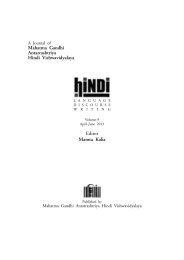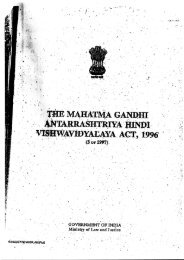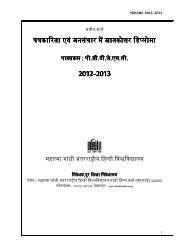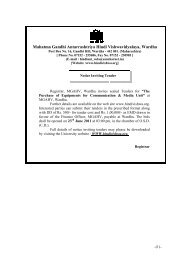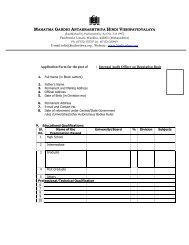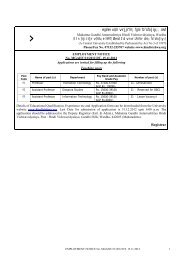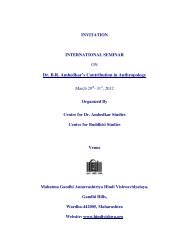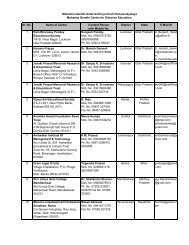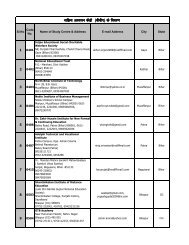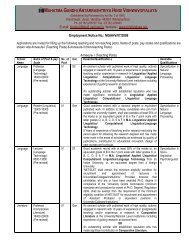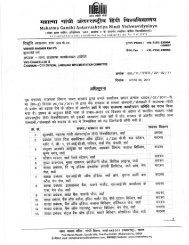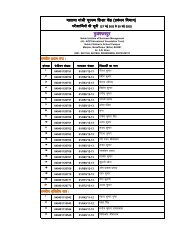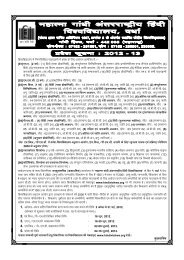Mamta Kalia
Mamta Kalia
Mamta Kalia
Create successful ePaper yourself
Turn your PDF publications into a flip-book with our unique Google optimized e-Paper software.
Language<br />
TRANSLATION: A QUEST<br />
OF POSTNATIONALISM<br />
Minu Manjari<br />
“KOS-KOS pe pani badle, Das kos pe bani”<br />
[The quality of water changes at every mile and that of language<br />
at every ten miles.]<br />
This saying common throughout the Hindi belt presupposes two<br />
things about ‘bani’ which are worth noting .<br />
a) it concedes to language the state of flux and fluidity as water.<br />
b) the diversity of language is as natural as the occurrence of<br />
water.<br />
In presence of such taken for grantedness it is hardly possibly<br />
that we think of translation consciously as theory or practical<br />
or anything even while translating. Doesn’t everybody use two<br />
or three or more than three languages every day? Is there anything<br />
to be put “in theory” in this ?<br />
It is as Sujeet Mukherjee says:-<br />
“………. We have been practicing translation for so many yearsso<br />
many centuries in fact that we forgot to stop and theorize.<br />
But odd things did happen in the colonial period which<br />
must be affecting our postcolonial outlook on translation without<br />
us realizing it, and this needs to be studied ………….”<br />
Several issues can pile up here in a mini Bower of Babel fashion–<br />
First of all what do we mean by translation? Linguistic transfer?<br />
What are the other issues that this transfer entails? What “Odd<br />
April-June 2010 :: 149



